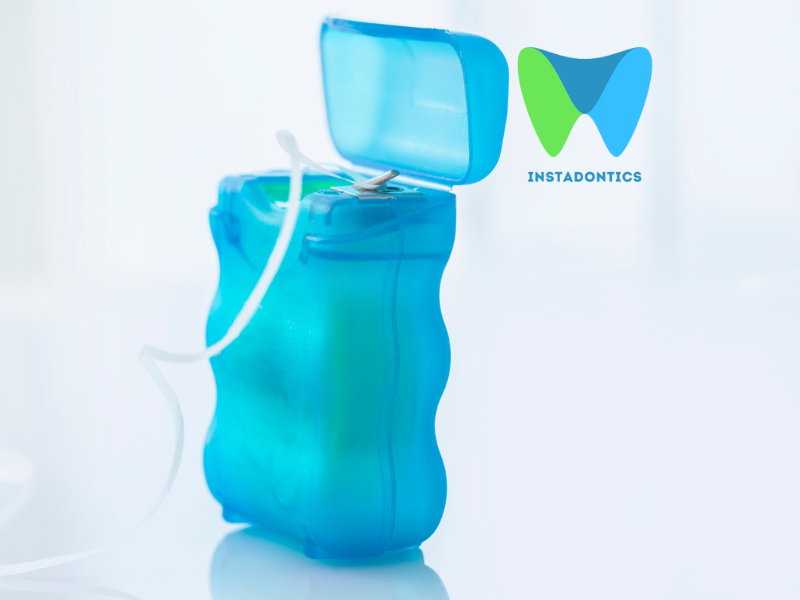Many people wonder if mouthwash is a necessary part of oral hygiene. Some believe it can keep breath fresh, while others think brushing and flossing are enough. Research shows that mouthwash can help reduce plaque and gingivitis when used alongside regular brushing and flossing.
Mouthwash comes in many types, including antiseptic and fluoride varieties. Each type serves different purposes, which can be confusing for those looking to enhance their oral care. Understanding these differences can help individuals choose the right product for their needs.
For those aiming for optimal oral health, knowing the role of mouthwash is important. It can make a difference in maintaining a clean mouth. This blog will explore whether mouthwash is truly necessary and how it fits into an effective oral hygiene routine.
Defining Oral Hygiene and Mouthwash
Oral hygiene refers to practices that keep the mouth healthy. This includes taking care of teeth, gums, and the entire mouth. Good oral hygiene helps prevent problems like cavities, gum disease, and bad breath.
Key practices of oral hygiene include:
- Brushing teeth at least twice a day
- Flossing daily to remove food between teeth
- Regular dental check-ups for cleanings and exams
Mouthwash is a liquid used to rinse the mouth. It can help in several ways. Some mouthwashes have ingredients that kill bacteria. Others help freshen breath or provide extra fluoride for stronger teeth.
Here are some common types of mouthwash:
- Antimicrobial: Reduces bacteria and helps fight gum disease.
- Fluoride: Strengthens teeth and helps prevent cavities.
- Breath fresheners: Focus on freshening breath but may not help with other issues.
Using mouthwash is not always necessary for everyone. Many people can maintain good oral hygiene without it. However, for some, it can be a helpful addition to daily routines.
Choosing the right mouthwash depends on individual needs and goals. Consulting a dentist can help determine the best choice.
The Role of Mouthwash in Oral Health Care
Mouthwash can play an important part in oral hygiene routines. It helps reduce bacteria in the mouth, which can lead to plaque and gum disease.
There are different types of mouthwash:
- Antibacterial mouthwash: Targets bacteria that cause gum disease.
- Fluoride mouthwash: Helps strengthen tooth enamel and prevent cavities.
- Cosmetic mouthwash: Freshens breath but may not improve oral health significantly.
Using mouthwash can reach areas that brushing and flossing might miss. This can be especially useful for those with braces or dental work.
Studies show that regular use of mouthwash can lead to healthier gums and fresher breath. It can also help reduce bad breath caused by food or drink.
It is important to choose the right mouthwash. Reading labels can help determine what formula fits specific needs.
For best results, mouthwash should be used as a supplement to brushing and flossing. It should not replace these key practices.
Incorporating mouthwash into daily routines can enhance overall oral care. It provides an additional layer of protection against oral health issues.
Types of Mouthwash and Their Purposes
Mouthwash comes in different types, each serving a specific purpose. Understanding these types helps individuals choose the right mouthwash for their needs.
Cosmetic Mouthwash
Cosmetic mouthwash primarily focuses on freshening breath. It contains flavors like mint or cinnamon. This type does not kill bacteria or help with dental health. Instead, it masks bad breath temporarily.
Many people use cosmetic mouthwash for its pleasant taste. It can make a person feel more confident in social situations. However, it is important to note that using it alone is not enough for good oral hygiene.
Therapeutic Mouthwash
Therapeutic mouthwash offers additional benefits beyond freshening breath. It can help fight plaque, reduce gum disease, and prevent tooth decay. These mouthwashes often contain antiseptic ingredients like chlorhexidine or fluoride.
Due to these active ingredients, therapeutic mouthwash can aid in oral health. It is commonly recommended by dentists, especially for people with specific dental concerns. Many therapeutic mouthwashes need a prescription or recommendation for use.
Choosing the right type of mouthwash can support both fresh breath and overall dental health.
Pros and Cons of Using Mouthwash
Mouthwash can help with oral hygiene, but it may not be necessary for everyone. It’s important to consider both the benefits and drawbacks of using mouthwash.
Benefits of Mouthwash
Mouthwash offers several benefits for oral health. Firstly, it can help reduce bad breath. Many people use mouthwash to freshen their breath and feel more confident.
Another key advantage is that some mouthwashes contain fluoride. This ingredient strengthens tooth enamel and helps prevent cavities. Regular use of fluoride mouthwash can be an effective addition to a daily dental routine.
Additionally, mouthwash can help kill bacteria in the mouth. This action may decrease the risk of gum disease and improve overall oral health. For some, mouthwash serves as an easy and quick way to enhance their oral care routine.
Potential Drawbacks
While mouthwash has benefits, there are also potential drawbacks. One issue is that some people may use mouthwash instead of brushing and flossing. This can lead to incomplete cleaning of the mouth.
Certain mouthwashes contain alcohol, which may dry out the mouth. A dry mouth can lead to bad breath and other oral health issues. People with sensitive mouths may also experience irritation from certain ingredients.
Moreover, using mouthwash too often can disrupt the natural balance of oral bacteria. This can lead to problems rather than help. It’s crucial to consider individual needs when deciding to use mouthwash.
Comparing Mouthwash with Traditional Brushing and Flossing
Mouthwash is often used as an addition to regular oral care. It can freshen breath and help reduce plaque. However, it is not a substitute for brushing and flossing.
Brushing is essential for removing food particles and plaque from teeth. Dentists recommend brushing twice a day for at least two minutes. This helps prevent cavities and gum disease.
Flossing targets areas where a toothbrush cannot reach. It removes plaque and debris from between teeth and along the gum line. Regular flossing is important for maintaining gum health.
Key Differences:
| Feature | Mouthwash | Brushing | Flossing |
|---|---|---|---|
| Removes Plaque | Somewhat | Yes | Yes |
| Freshens Breath | Yes | No | No |
| Targets Gum Health | Limited | No | Yes |
| Time Needed | 30 seconds to 1 minute | 2 minutes | 1-2 minutes |
Mouthwash can support oral hygiene, but it lacks the effectiveness of brushing and flossing. Regular brushing and flossing remain the most important practices for good oral health.
Expert Recommendations for Mouthwash Use
Experts agree that mouthwash can be a helpful addition to daily oral hygiene. It is not a substitute for brushing and flossing, but it can enhance these practices.
Types of Mouthwash
- Fluoride Mouthwash: Helps to strengthen teeth and prevent cavities. Recommended for those at higher risk for tooth decay.
- Antiseptic Mouthwash: Reduces plaque and fights gum disease. Useful for people with gum problems.
Frequency of Use\
Most dentists suggest using mouthwash once or twice a day. It is best to follow this routine after brushing and flossing for maximum effectiveness.
Choosing the Right Mouthwash\
When selecting a mouthwash, look for those approved by dental associations. Ingredients like fluoride and alcohol levels are important to consider.
Consulting a Dentist\
It’s wise for individuals to consult their dentist before starting any new oral care products. Personalized recommendations can help people choose the best options for their specific needs.
In summary, mouthwash can support good oral hygiene when used correctly. Following expert advice helps ensure that it provides the desired benefits without becoming a replacement for brushing and flossing.
Mouthwash Use for Specific Dental Conditions
Mouthwash can play a helpful role in managing specific dental issues. Understanding how it benefits conditions like gum disease, cavities, and bad breath can guide its effective use.
Gum Disease
Mouthwash can assist in treating gum disease, also known as periodontal disease. This condition occurs when plaque builds up on teeth and leads to inflammation of the gums.
Using an antibacterial mouthwash may help reduce bacteria in the mouth. Ingredients like chlorhexidine or essential oils can be effective. Regular use can promote healing and reduce gum inflammation.
It’s important to note that mouthwash alone cannot replace brushing and flossing. It should be used as a complementary part of oral care for the best results.
Cavities Prevention
Mouthwash can also help in preventing cavities. Cavity-causing bacteria thrive in the mouth, leading to tooth decay.
Fluoride mouthwashes can strengthen tooth enamel. They make teeth more resistant to acid attacks from plaque bacteria. Using fluoride mouthwash after brushing can provide an extra layer of protection.
For best outcomes, it’s advisable to choose a mouthwash labeled for cavity prevention and to use it consistently.
Halitosis Management
Mouthwash is commonly used to manage halitosis, or bad breath. Certain ingredients can target the bacteria responsible for unpleasant odors.
Mouthwashes containing zinc or essential oils may neutralize bad breath effectively. They can also leave a fresh taste in the mouth.
While mouthwash can mask bad breath temporarily, it’s vital to address the root cause. Regular brushing, flossing, and hydration are equally important for fresh breath.
Common Misconceptions About Mouthwash
Many people have misunderstandings about mouthwash and its role in oral care. Here are some common misconceptions.
- Mouthwash can replace brushing and flossing.
This is not true. Mouthwash is meant to be an addition to regular brushing and flossing, not a substitute. - All mouthwashes are the same.
Different types of mouthwash serve different purposes. Some fight plaque, while others are for freshening breath. - Using mouthwash guarantees fresh breath all day.
While mouthwash can help with bad breath temporarily, it does not last forever. Factors like diet and oral health play a big role. - Alcohol in mouthwash is necessary for effectiveness.
Many mouthwashes contain alcohol, but it is not essential. There are alcohol-free options that work just as well. - More mouthwash means better results.
Using too much mouthwash can irritate the mouth. It’s important to follow the instructions on the label. - Mouthwash whitens teeth.
Some mouthwashes may help with staining, but they do not provide the same whitening effects as professional treatments.
Knowing these misconceptions can help individuals make better choices about their oral hygiene routines.
- Dysgeusia: Causes, Symptoms, and Management
- Signs You Need to Visit Your Dentist
- Understanding Tooth Sensitivity
- The Link Between Diabetes and Gum Disease
- How Diet Affects Teeth Grinding | The Hidden Connection
- The Best Mouthwash for Gum Disease
- Can Tooth Pain Cause Ear Pain?
- Options for Replacing Missing Teeth



